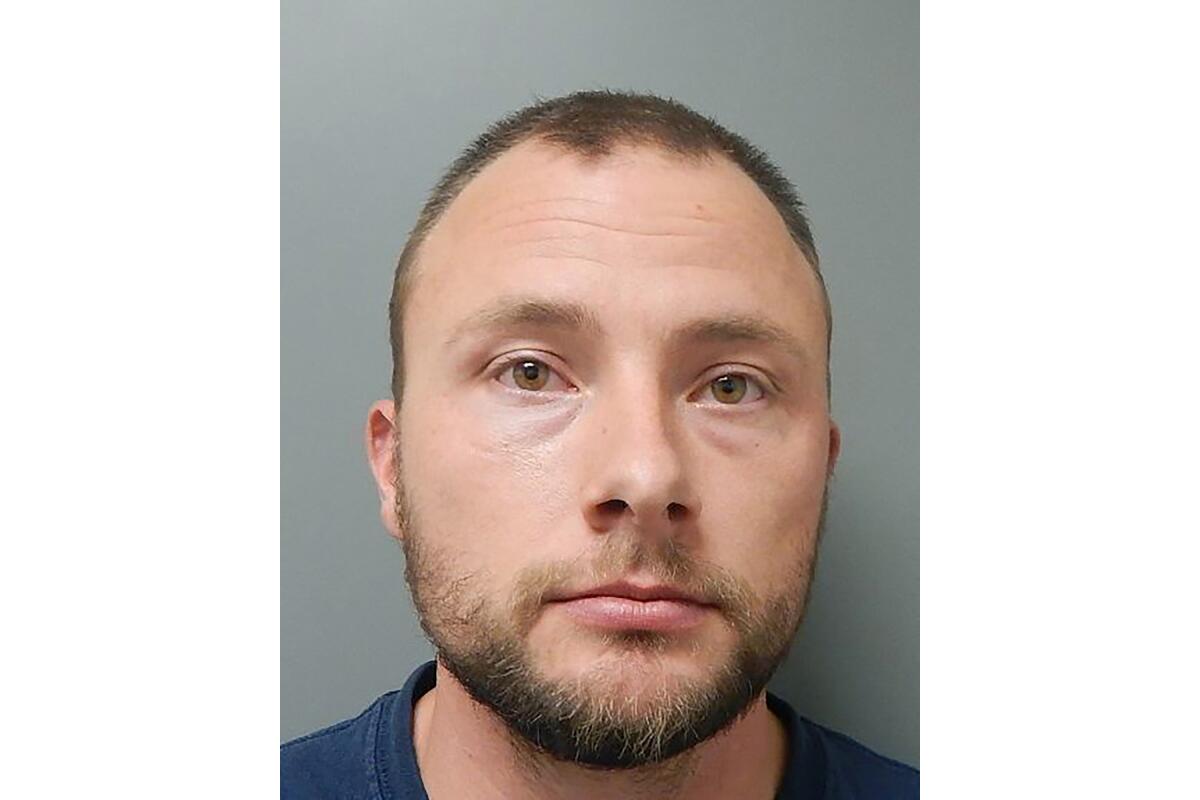Louisiana state trooper charged in pummeling of Black man

- Share via
A former Louisiana State Police trooper has been charged with a civil rights violation for pummeling a Black motorist 18 times with a flashlight — the first criminal case to emerge from federal investigations into troopers’ beatings of at least three Black men.
A grand jury on Thursday indicted Jacob Brown for the 2019 beating following a traffic stop that left Aaron Larry Bowman with a broken jaw, broken ribs and a gash to his head. Brown was charged with one count of deprivation of rights under color of law, federal prosecutors said.
Brown’s attorney, Scott Wolleson, declined to comment
Bowman’s attorney, Donecia Banks-Miley, called the indictment “a sigh of relief.”
“We’re just trying to remain hopeful and trust the process of justice,” she told the Associated Press. “Aaron is extremely happy, and he just wants full justice.”
Brown’s indictment comes as the federal prosecutors on the case are scrutinizing other troopers who punched, stunned and dragged another Black motorist, Ronald Greene, before he died in their custody on a rural roadside. The probe of Greene’s 2019 death has grown to examine whether police brass obstructed justice to protect the troopers who beat the Black motorist after a high-speed chase.
Body camera video of both beatings, which took place less than three weeks and 20 miles apart, remained under wraps before the AP obtained and published them this year. They are among a dozen cases over the past decade in which an AP investigation found troopers or their bosses ignored or concealed evidence of beatings, deflected blame and impeded efforts to root out misconduct.
“The department has previously acknowledged that it has open and ongoing criminal investigations into incidents involving the Louisiana State Police that resulted in death or bodily injury to arrestees,” the U.S. Department of Justice said in a statement. “Those investigations remain ongoing.”
On the May night Bowman was pulled over for a traffic violation, Brown came upon the scene after deputies had forcibly removed Bowman from his vehicle and taken him to the ground. The trooper later told investigators he “was in the area and was trying to get involved.”
Video and police records show he beat Bowman 18 times with a flashlight in 24 seconds after deputies pulled him over for a traffic violation near his Monroe home. Brown later said Bowman had struck a deputy and the blows were “pain compliance” intended to get Bowman into handcuffs.
Bowman, 46, denied hitting anyone and is not seen on the video being violent with officers. He still faces a list of charges, including battery of a police officer, resisting an officer and the traffic violation for which he was initially stopped, improper lane usage.
Brown, 31, failed to report his use of force and mislabeled his body-camera footage in what investigators described in internal records as “an intentional attempt to hide the video.” State police didn’t investigate the attack until 536 days later, and only did so after a lawsuit from Bowman.
Brown was perhaps the Louisiana State Police’s most prolifically violent trooper in recent years. Records show he tallied 23 uses of force dating to 2015 — 19 on Black people — and he faces state charges in Bowman’s case and two other violent arrests of Black motorists.
The Louisiana State Police’s own tally shows that in recent years 67% of its uses of force were against Black people. That figure has fueled mounting calls from civil rights groups and Black leaders for the U.S. Justice Department to go beyond individual prosecutions and launch a “pattern and practice” probe into potential racial profiling by the agency.
Col. Lamar Davis, the head of the state police, said earlier this month that he would welcome such a probe if the department deems it necessary but that he wants the opportunity to correct the department’s issues and is already working to do so.
More to Read
Sign up for Essential California
The most important California stories and recommendations in your inbox every morning.
You may occasionally receive promotional content from the Los Angeles Times.









